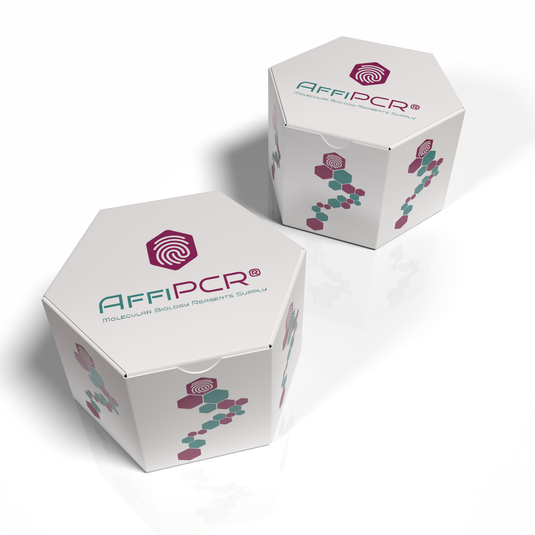AffiPCR® Taq Pro Multiplex DNA Polymerase (High sensitivity)
AffiPCR® Taq Pro Multiplex DNA Polymerase is a new generation of hot-start DNA polymerase based on antibody modification and upgraded to improve template affinity. The High sensitivity version has been carefully optimized for multiplex PCR with strong amplification ability and high detection sensitivity. With the optimal buffer system for multiplex PCR, it is compatible with a wide range of product GC content and primer Tm values. The vast majority of multiplex PCR assays can be performed at a universal annealing temperature of 60°C without additional optimization. This product has extremely high amplification efficiency, and can simultaneously amplify target fragments in the range of 50 - 3,500 bp; it has strong amplification ability, and can carry out enrichment of several hundred or more amplicons; excellent impurity tolerance, highly resistant to a variety of inhibitors and impurity types, and compatible with direct amplification of whole blood, blood cards, etc. The reagents have good stability, wide applicability, and are compatible with a variety of detection scenarios.
Storage Conditions:
Store at -30°C ~ -15°C and transport at ≤0.
Applications:
Multiplex PCR amplification with DNA as template; detection and typing of pathogens; molecular hybridization detection, etc.
Notes:
- Primer design is critical to the success of multiplex PCR amplification. On the one hand, primer design needs to meet conventional primer design rules to avoid non-specific amplification and failure to amplify. On the other hand, the designed primer pairs are verified by PCR one by one, and then the primer pair with better effect can be selected for multiplex PCR amplification. High-quality primers are recommended.
- It is recommended that the target fragment does not exceed 3,500 bp.
- The recommended final concentration of each primer reaction is 0.2 μM. Newly synthesized primers should be calibrated for their true concentrations before use. If the yield of some target fragments is low, the amount of corresponding primers can be appropriately increased to improve the amplification yield.
- When the amplification efficiency is low, the primer concentration can be appropriately increased; when non-specific amplification occurs, the primer concentration can be appropriately decreased.

